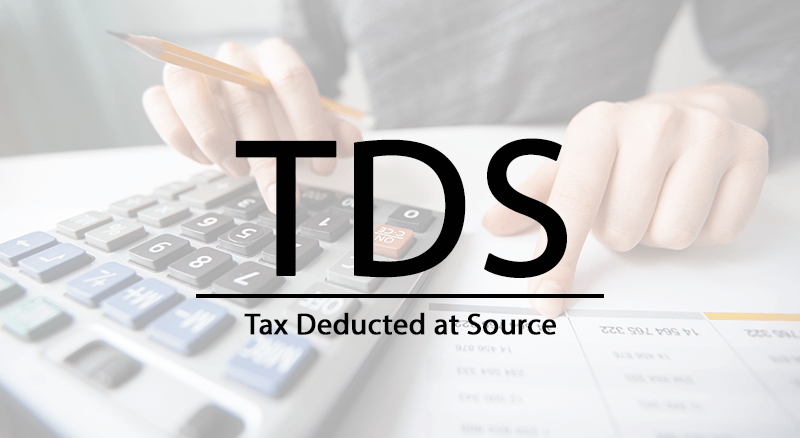

Time and again, you might have heard about this term. In this blog, I will try to answer some basic questions related to TDS so that you can understand its importance and use.
What is TDS?
Tax Deducted at Source or TDS in common is a tax that is deducted from the total payment by the person or an organization that is paying it. These payments can be anything ranging from salary, interest by banks, commission income, professional income or rental income.
In general, an individual has to pay tax to the Government at the end of every financial year while filing Income Tax Return.
But in some cases, Government collects advance tax with the help TDS mechanism on any payment received by the recipient.
In case, if the recipient gross income is below the taxable income, he/she will get the full refund from the Income Tax Department. Otherwise, the TDS will be adjusted against the tax on his/her gross income.
Who has to deduct TDS?
Any business except, individual or HUF who doesn’t have to undergo mandatory auditing, has to deduct the TDS.
The rate of TDS for various employers is mentioned in the Income Tax act. In case of Banks, they deduct 10% TDS on the interest, but if you have not updated PAN information, they will deduct 20% TDS.
You can prevent this tax deduction on interest by submitting Form 15G and Form 15H. You can do the same by submitting your tax deductions u/s 80C of Income Tax Act 1961, to your employer.
If you fail to submit these documents, you still have an option to reclaim the TDS by filing your ITR.
What is the TDS Certificate?
It’s a document issued by the tax deducting entity to the person from whose income the tax is deducted. Form 16, Form 16A, Form16B, & Form16C are all the TDS certificate.
All these certificates are issued as per the nature of TDS.
Following is the list of the various form and relevant deductions
Form 16
TDS on salary payment (Yearly)
Form 16 A
TDS on non-salary payments (Quarterly)
Form 16 B
TDS on sale of property (Every transaction)
Form 16 C
TDS on rent (Every transaction)
How can you view your TDS?
Every TDS is linked with the PAN of the deductor and the deductee. That means, whenever your TDS is deducted from any source, the information will be updated with your PAN.
You can access information about all the TDS from the Form 26AS. It is a tax credit form that contains detailed information of every TDS deducted from your income. It also includes information related to advance tax paid by you.
It’s mandatory to mention every TDS linked with your PAN while filing ITR. So you should always check your Form 26AS before you file your ITR.
Will you have to file TDS return?
If you are deducting TDS, you must file the TDS return. This return ensures that the tax you collected from the deductee is deposited with the Income Tax Department.
While filing your TDS return, you will have to submit various information like TAN, amount of TDS, details including the PAN of the deductee and type of payment.
All the TDS returns must be filed every quarter except the TDS on sale of property and TDS on rent. For TDS on rent & sale of the property, it has to be submitted before 30th o the month in which tax is deducted.
Tax liability when TDS is deducted from income
If you are a salaried person, the TDS deducted from your income will be per your tax slab.
If your income source is other than the salary, the tax rate varies from 10% to 20%, depending on the type of income.
Your actual tax liability will be calculated based on your gross income. So you will have to calculate the total payment from every source before calculating the tax.
If you are below the tax slab, you will get a full refund on all the TDS from your various incomes. If your income exceeds the threshold limit, TDS will be adjusted against your tax liability.
Conclusion
TDS is a vital part of your income, and you should have a detailed understanding of it. There is a possibility that you might be eligible for a rebate on you TDS. That is the reason experts advise people to file their ITR on time.
Filing ITR helps you stay compliant, and in this case, it can also assist you in reclaiming your tax that you already paid!
Do not struggle with the hassle of Income Tax filing and compliances!
Call our experts, and they will help you in filing your ITR most efficiently by optimizing your tax!
For any further queries, feel free to reach us!


